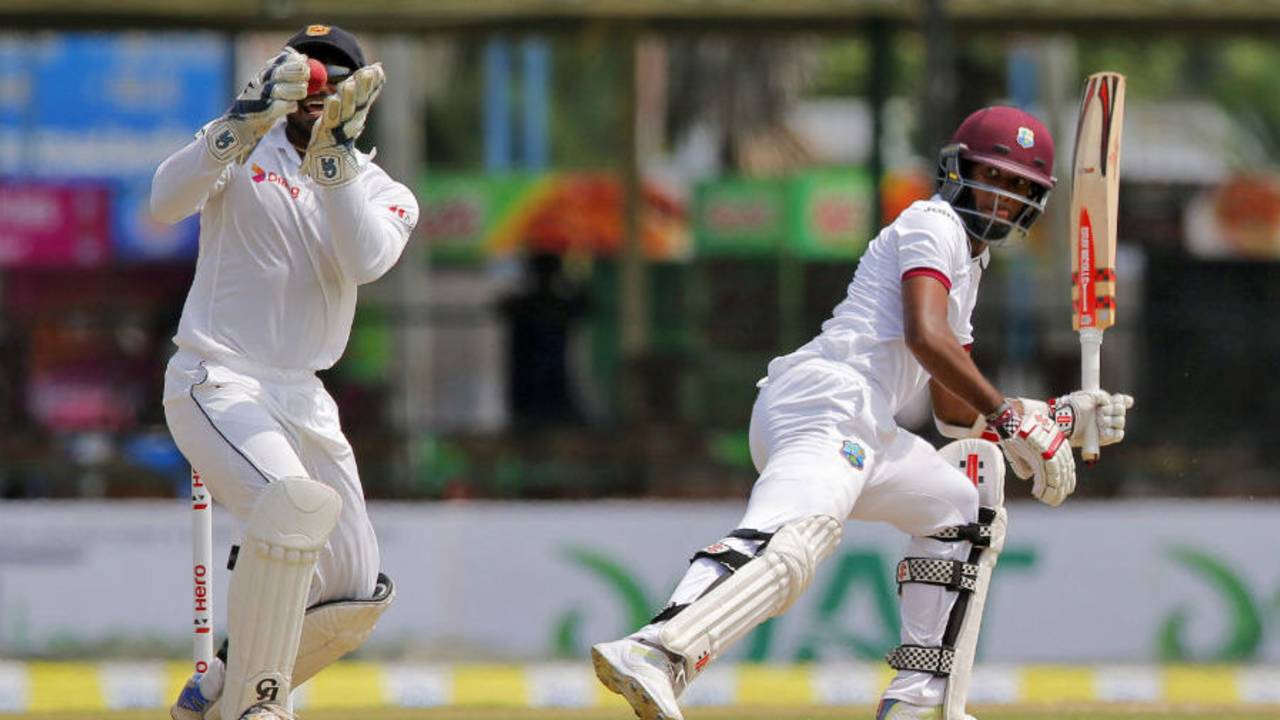Batting collapses come in a range of shapes and sizes. With 11 of the last 12 Tests played in Sri Lanka having yielded results, it's fair to say the island has seen its share.
There are the classic dramatic capitulations. These begin poorly, grow steadily worse through the middle, and end so spectacularly bad that the arrival of the apocalypse is sometimes suspected. One such was India's fourth-innings in Galle that prompted strident panning of the team's overseas record, and led to much soul-searching as to the batsmen's capabilities against spin. Within two weeks, the team had made light work of Sri Lanka in the following Tests.
There are batting efforts which take off with a sideways judder, like a plane in a strong crosswind, then fly successfully for a brief period, before, through a series of unrelated mishaps, like the door falling off, and the co-pilot managing to set his pants on fire, the whole thing nosedives. Sri Lanka have been particularly adept at this, as various batsmen have had vulnerabilities of all kinds exposed through the home season. In the end, Angelo Mathews alone is left floating down on his parachute, surveying the wreckage below him with a palm pressed to his face.
Over the course of this series, West Indies have mastered another kind of collapse. Theirs is neither explosive nor apocalyptic, but nonetheless deserves to be inspected, and put through a post-mortem. On each occasion this series, their total has crossed 150. One batsman usually gets a half century - or as was the case today - gets very close. And most in the XI, in the upper and lower floors of the batting order, get to double figures, but fail to go on to scores of substance.
In this they are like 11 men in a punctured life raft. They all take turns blowing air into it - one guy even tries a little harder than the rest - but they soon run out of breath and give up. Before long they are all in the water, with Sri Lanka's close-in fielders encircling them like sharks.
The P Sara surface was treacherous for sure, but on Friday, Sri Lanka did not have to bowl particularly well for some of their scalps. Dhammika Prasad got a little true bounce out of the pitch, but it was his poor short balls that opposition batsmen perished to. Nightwatchman Devendra Bishoo had cut Prasad for four early in the day, but when he was provided another short, wide ball a few overs later, he sent a nick to the keeper.
Darren Bravo's departure was similar. He survived a yorker-bouncer change-up from Prasad, in the 15th over, ducking the second ball without much discomfort. Then Prasad went short again, but this one was poorly directed - away from the body and easily avoidable. Bravo chopped at it instead, and saw the ball plummet from his under-edge into the stumps. There was a Chaplin-esque slapstick to the dismissal - Bravo was the man who leapt with alacrity over the banana peel, then walked face-first into the lamppost.
Then, having seen two wickets fall to a good spell from left-arm spinner Milinda Siriwardene, Denesh Ramdin must have decided Rangana Herath was feeling left out. His heave across the line in the 56th over was a contender for poorest shot of the series; the ball passing several inches from his bat en route to the stumps. Even Herath was so underwhelmed, he celebrated with a mere shrug. Dilruwan Perera was equally undemonstrative as he cleaned out the tail.
"We could have done better - some of the shots were not of the best," the opener
Kraigg Brathwaite said of the innings, after he had top-scored with 47. "Once you organise and plan your innings, you could succeed on that pitch."
Having finished the day 113 runs behind, with eight opposition wickets still to get, West Indies face the distinct possibility of having to make the game's highest score in order to level the series. With the pitch already beginning to take sharp turn, Sri Lanka's spinners will only become more dangerous - the sharks around the bat will only grow in number. It is not often that a team that reduces the opposition to 200 on the first day, ends the second in such dire circumstances. But then again, most teams do not go three full innings without a 50-run stand.
Andrew Fidel Fernando is ESPNcricinfo's Sri Lanka correspondent. @andrewffernando
